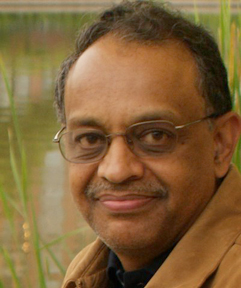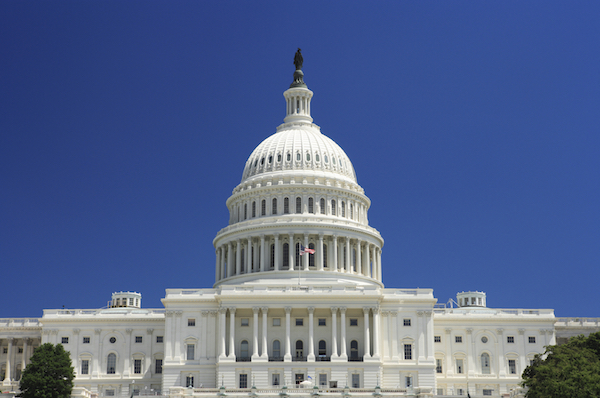
Modi confabulates with world leaders abroad while a part of India is burning
“Although the Biden Administration promised to put human rights, religious freedom, and press freedom at the forefront of foreign policy, they appear to be very selective in their approach to building relationships. If America should continue to be a shining city on a hill for all those who love freedom and liberty, President Biden should have a frank talk and sincere discussion with Prime Minister Modi urging him to uphold shared values, without which a stronger or more reliable friendship can never be achieved. Mr. President, please ask Mr. Modi why he didn’t utter a word until now on the continuing bloodshed and suffering of his own people in Manipur as he readies to raise his champagne glass in the White House.”

Last month, in Hiroshima, Japan, Italian Prime Minister Giorgia Meloni announced in the middle of the Group of Seven (G-7) summit that she would leave the meeting a day earlier than scheduled to lead the response to floods which hit the north of her country very hard that week. Torrential rains devastated eastern parts of the Emilia-Romagna region, killing 14 people and causing enormous damage. Compare that to Mr. Modi, the Prime Minister of India, who is on a state visit to the United States when the state of Manipur is burning, hundreds of people are being killed, and thousands are made homeless by Hindu militants by burning the entire villages often with people inside as part of a broader agenda to ethnically cleanse the tribal people who are mostly Christians from the land they have inhabited for hundreds of years.
Mr. Modi also traveled to Australia after the Quad summit in Papua New Guinea while the Manipur mayhem was getting out of hand in the name of strengthening bilateral relations between the two countries. However, the primary discussion reported to the news media was the recent attacks on the Hindu temples in Australia. The foreign secretary Vinay Mohan Kwatra, responding to a question about the attacks, reiterated that the Indian government had made its case very clearly. “The attack on the temples and activities of the other separatist elements were also discussed by the two prime ministers earlier and today. From the discussions last time till this time, the progress is clearly reflected in the fact that PM Modi thanked PM Albanese for the action that the Govt of Australia has taken against these elements,” said Kwatra.
There is absolutely nothing improper about a leader concerned about his people in foreign lands, especially for their security and safety. However, it is ironic for a man to engage in primary discussion protecting the places of worship of his own faith on a foreign land while allowing 253 churches to be torched by his supporters back home. Christian organizations in the area have recorded the burning, damage, or destruction of those churches and six Christian Institutions amid the wave of violence. Significantly, these churches primarily served as places of worship for Meitei Christians. It is alleged that these structures were primarily targeted and destroyed by Meitei Hindus. The RSS, the militant Hindu Group, is believed to be behind these attacks. One also wonders that in the middle of the fight between Meiteis and Kukis over land rights, why did the mob burn down and destroy 249 churches in the Meitei heartland in the first wave of violence?
Mr. Joshua Hangshing, one of the victims of this dastardly attack, said, “Mobs shouted threatening at my wife, accusing her of converting to Christianity. Moments later, she and her son Joshua were burned alive while the perpetrators rejoiced in their macabre victory. The last words of my innocent son were Papa, Papa”. This ongoing violence could have been prevented within days if the government in Manipur and the Home Ministry in Delhi had acted responsibly.
In a parliamentary democracy, elections are competitive and often fought bitterly. However, once a party leader takes the oath of office, that person becomes the leader of the entire nation. However, what we are witnessing in India today contradicts that norm. Prime Minister Modi and the party he represents, BJP, may be interested only in one religious group’s welfare and appear unconcerned about its implications. The consequences are out in the open where minorities fall victim to his party’s nefarious agenda pressing ahead for a majoritarian rule.
For Indian Americans, a state visit by the leader of their motherland should be a heartwarming occasion. Undoubtedly, it signifies the importance the U.S. government attaches to this relationship. They would like to see a warm relationship built on shared values and shared interests. However, the Diaspora is polarized over this overture as numerous reports indicate how the Modi administration’s efforts to undermine its democratic institutions, including the judiciary, muzzling the media and driving the nation on a perilous path towards authoritarianism.
Although the Biden Administration promised to put human rights, religious freedom, and press freedom at the forefront of foreign policy, they appear to be very selective in their approach to building relationships. If America should continue to be a shining city on a hill for all those who love freedom and liberty, President Biden should have a frank talk and sincere discussion with Prime Minister Modi urging him to uphold shared values, without which a stronger or more reliable friendship can never be achieved. Mr. President, please ask Mr. Modi why he didn’t utter a word until now on the continuing bloodshed and suffering of his own people in Manipur as he readies to raise his champagne glass in the White House.
It is a sad spectacle that a good portion of the Indian Diaspora shows little or no compassion for the suffering people in Manipur. According to Arthur Schopenhauer, compassion is the basis for morality. When we restrain compassion, our moral identity is compromised. It is time to ponder that India’s success as a democracy is seriously compromised by a serious deficit of compassion and a pervasive absence of integrity. India’s own treatment of its vulnerable minorities is not a good indicator of the well-being of Non-resident Indians across the world, where they will not have a leg to stand on demanding fairness, equality, and justice.
(Author is a former Chief Technology Officer at the United Nations. He is Vice Chairman of IOC USA. He can be reached at gta777@gmail.com)





Be the first to comment